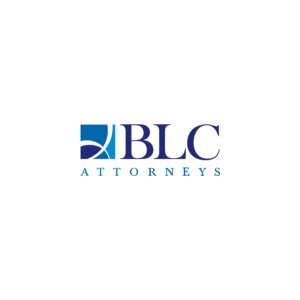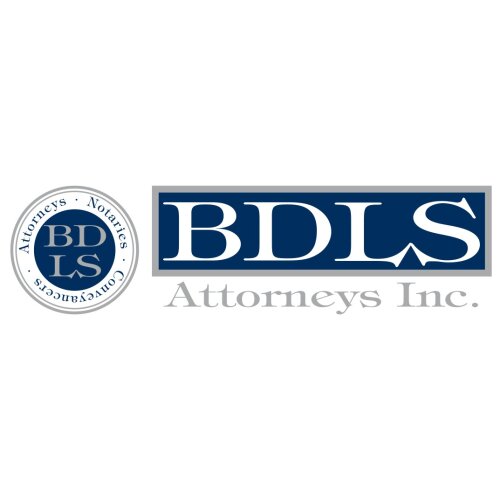Best Inheritance Law Lawyers in Port Elizabeth
Share your needs with us, get contacted by law firms.
Free. Takes 2 min.
List of the best lawyers in Port Elizabeth, South Africa
About Inheritance Law in Port Elizabeth, South Africa
Inheritance law in South Africa is a national framework that applies across Port Elizabeth and the Eastern Cape. The core regimes are set out in the Wills Act, the Intestate Succession Act and the Administration of Estates Act. These laws determine how a person’s assets are distributed when they die, whether there is a valid will or not.
Key processes include proving a will or confirming intestate succession, applying for a grant of probate or letters of executorship, and then administering the estate by paying debts and distributing assets to heirs and beneficiaries. In Port Elizabeth, these steps are handled through the Master of the High Court and the local High Court, with property transfers and asset valuations often requiring local court involvement.
Estate administration in South Africa is supervised by the Master of the High Court after probate is granted or letters of executorship are issued.
Source: Department of Justice and Constitutional Development
Why You May Need a Lawyer
When handling inheritance matters in Port Elizabeth, skilled legal counsel can prevent delays and protect your rights. Below are concrete scenarios where a lawyer’s guidance is essential.
- Scenario 1: Complex estate with local assets - A deceased owned a beachfront home in Summerstrand and a family business in Port Elizabeth. A lawyer helps interpret the will, coordinate asset valuations, and ensure correct distribution to beneficiaries.
- Scenario 2: Beneficiary disputes or potential challenges - Spouses or children dispute the validity or interpretation of a will, alleging undue influence or lack of testamentary capacity. A solicitor can advise on objections, evidence, and court steps.
- Scenario 3: Cross-border assets or foreign executors - The deceased held assets outside South Africa or an executor lives abroad. A legal counsel is needed to manage cross-border processes, tax implications, and local probate requirements.
- Scenario 4: Minor beneficiaries or guardianship - A portion of the estate must be held in trust or managed for a minor child. A lawyer can help set up guardianships and ensure proper trustee duties.
- Scenario 5: No will or intestate succession issues - When there is no will, the distribution follows statutory rules. A lawyer helps identify rightful heirs, coordinate with the Master, and manage debt settlement.
Local Laws Overview
The inheritance framework in Port Elizabeth rests on several key statutes. Here are the main acts by name, with the roles they play in estate matters.
- The Wills Act, No 7 of 1953 - Sets out how a valid will is created, executed and revoked. It governs capacity, signing, witnesses and the formalities required for a will to be effective.
- The Intestate Succession Act, No 81 of 1987 - Applies when a person dies without a valid will. It provides the statutory framework for distributing the estate among spouses, children and other relatives.
- The Administration of Estates Act, No 66 of 1965 - Regulates the process of administering estates, including the role of the Master of the High Court and the grant of probate or letters of executorship.
In Port Elizabeth, matters are overseen by the Eastern Cape Master of the High Court for probate and estate administration. These acts create the rules for how assets, debts and taxes are managed, and how beneficiaries receive their allocations. For practical steps, you typically start with a will or intestate process, move to probate, then complete asset distribution under court supervision.
Source: Department of Justice and Constitutional Development
Source: South African Government Portal
Frequently Asked Questions
What is the role of the Master of the High Court in Port Elizabeth?
The Master oversees probate and estate administration, including issuing letters of executorship and ensuring debts are paid before distribution to heirs.
How do I start probate for an estate in Port Elizabeth?
File the required documents with the Master of the High Court in the Eastern Cape. A lawyer can prepare the probate papers, verify the will, and guide you through the process.
When should I hire a lawyer for an inheritance matter in Port Elizabeth?
Hire a lawyer if there is a disputed will, complex assets, cross-border property, or potential tax or debt issues that require professional coordination.
Where do I file a will for probate in Port Elizabeth?
Probate applications are filed with the Master of the High Court in the Eastern Cape, which handles estate matters for Port Elizabeth.
Why might a will be challenged in Port Elizabeth courts?
Challenges can arise from questions about testamentary capacity, undue influence, coercion, or procedural defects in the will.
Can I contest an inheritance in Port Elizabeth?
Yes, beneficiaries or eligible heirs can challenge an estate or the validity and interpretation of a will through the courts with legal representation.
Should I appoint a professional executor in my will?
Appointing a professional executor can help manage complex estates, ensure compliance with tax and reporting duties, and reduce delays.
Do I need a will if I am married in community of property?
Yes, a will supplements the statutory rules and can tailor asset distribution; it does not replace statutory rights under intestate rules.
Is intestate succession used if there is no will in Port Elizabeth?
Yes, the Intestate Succession Act governs distribution when there is no valid will, with shares typically allocated to spouses and children.
How much does estate administration cost in Port Elizabeth?
Costs vary by estate size and complexity. A lawyer will quote fees, and courts may assess administrative costs and taxes as part of the process.
How long does probate typically take in Port Elizabeth?
Probate timelines vary with case complexity. Simple estates may take several months, while large estates with disputes can extend to years.
Do I need to be a South African resident to administer an estate?
No, but residency and presence can affect processes, especially for asset verification and tax compliance. A local attorney can advise on requirements.
Additional Resources
Access official bodies and professional organizations for authoritative guidance on inheritance matters in Port Elizabeth.
- Department of Justice and Constitutional Development (DOJCD) - National oversight of justice services, probate processes, and the Master of the High Court. Website: justice.gov.za.
- South African Revenue Service (SARS) - Administers estate duties, tax clearances, and related tax obligations arising from estate administration. Website: sars.gov.za.
- Law Society of South Africa (LSSA) - Professional body that provides practitioner referrals and guidance on ethical standards for lawyers handling wills and estates. Website: lssa.org.za.
Next Steps
- Gather key documents now: death certificate, will, asset list, property deeds, debts, and tax numbers. Aim to complete within 1 week.
- Compile a concise brief of your goals and concerns for the estate, including any potential disputes or assets in Port Elizabeth.
- Schedule an initial consultation with a Port Elizabeth inheritance law solicitor through the Law Society referral service or a trusted firm. Plan for 1-2 hours to cover the basics.
- Have the lawyer review the will (if present) and determine if probate or intestate procedures apply. Expect a written engagement letter and cost estimate.
- Proceed with probate or letters of executorship with guidance from your lawyer. Allow 2-6 weeks for filing and initial processing, depending on complexity.
- Coordinate asset valuation, debt settlement, and tax clearance with SARS, while keeping beneficiaries informed. Plan 1-3 months for initial round of settlements.
- Distribute assets to beneficiaries under the supervision of the Master of the High Court. Monitor for any objections and address them promptly with your lawyer.
Lawzana helps you find the best lawyers and law firms in Port Elizabeth through a curated and pre-screened list of qualified legal professionals. Our platform offers rankings and detailed profiles of attorneys and law firms, allowing you to compare based on practice areas, including Inheritance Law, experience, and client feedback.
Each profile includes a description of the firm's areas of practice, client reviews, team members and partners, year of establishment, spoken languages, office locations, contact information, social media presence, and any published articles or resources. Most firms on our platform speak English and are experienced in both local and international legal matters.
Get a quote from top-rated law firms in Port Elizabeth, South Africa — quickly, securely, and without unnecessary hassle.
Disclaimer:
The information provided on this page is for general informational purposes only and does not constitute legal advice. While we strive to ensure the accuracy and relevance of the content, legal information may change over time, and interpretations of the law can vary. You should always consult with a qualified legal professional for advice specific to your situation.
We disclaim all liability for actions taken or not taken based on the content of this page. If you believe any information is incorrect or outdated, please contact us, and we will review and update it where appropriate.











